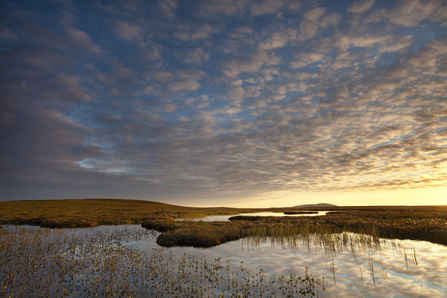In the run up to two major UN environmental conferences taking place this year – COP26 in Glasgow and the Biodiversity Convention in Kunming – today’s Budget is a major test of the Government’s ambition to demonstrate world leading action at home to reverse nature’s decline and put us on a path to net zero carbon emissions.
The 2019 Conservative manifesto pledged to “prioritise the environment in the next Budget” with investment in nature, including a £640 million new Nature for Climate fund.[i]
Natural solutions have a big part to play in tackling the climate crisis. Healthy natural habitats can store huge amounts of carbon, and restoring our damaged, fragmented and threatened wild places is essential if we are to reach net zero.
The Wildlife Trusts are playing a leading role in making this happen, with projects around the UK improving, expanding and protecting the wild places that are key for capturing carbon. We are therefore pleased that the Chancellor today pledged to use the new Nature for Climate fund to protect, restore and expand vital habitats, including planting around 30,000 hectares of trees and restoring 35,000 hectares of peatland.
Joan Edwards, Director of Public Affairs and Marine Conservation at The Wildlife Trusts, says:
“We are facing two inextricably linked crises – the climate emergency and the massive decline of nature across the globe. The Government’s Budget has recognised that we cannot solve one crisis without tackling the other.
“The Nature for Climate fund could help restore vital habitats, such as peatlands and saltmarshes, which have huge potential to absorb carbon dioxide from the atmosphere as well as helping nature to recover. It is essential that this is done as part of a wider national Nature Recovery Network to restore ecosystems and give wildlife space to adapt and thrive.
“But for this to be a truly green budget, the Government must ensure new spending announced on road infrastructure does not come at the expense of nature. It is vitally important that we protect our remaining wild places – for the benefit of people and wildlife.”

